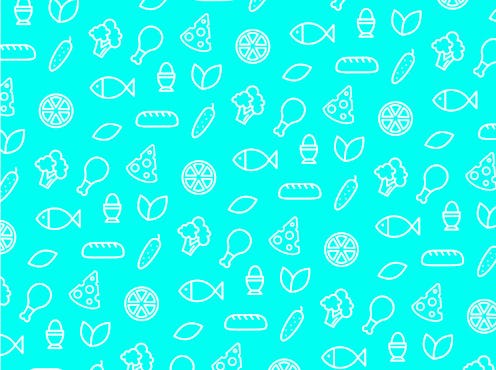Life
The Best Vitamins and Minerals for Women

We get it: it's easy to let self-care fall by the wayside amid the hustle and bustle of work, children, significant others, being social, stalking ex-boyfriends on Instagram, and all of the other preoccupying parts of daily life.
But there's perhaps no better (or easier) way to resurrect your overall well-being than to take a cue from high school science textbooks and the back of our medicine cabinets. We're talking about two things that hit the trifecta of self-care by improving the health of your mind, body, and soul: vitamins and minerals.
While some may retain some knowledge of these compounds from Mr. Molina’s high school science class (shoutout to our Twilight peeps), most of us are not quite educated enough to know which vitamins and minerals are essential, what each one does, and how to reach healthy levels without binging on raw spinach or baking in the sun. (No, I don’t recommend doing either of those things.) Don’t worry, I've got you — and your body — covered.
In order to maintain — and, possibly, improve — your health, it’s critical to create a diet and lifestyle that is rich in vitamins and minerals. While these compounds are crucial to all sexes, women’s bodies offer a unique set of health challenges and dietary necessities. To ensure that you're educated both on the necessity of these compounds as well as the way to get them into your daily diet, we've partnered with Walgreens on the guide below.
This complex of eight vitamins offers important benefits for both men and women. You can find B vitamins in foods that are likely already a part of your diet, including fish, poultry, meat, eggs, dairy, and whole grains.
Why It's Important: B vitamins help produce serotonin and can reduce the risk of anxiety, fatigue, and depression. It's also B vitamins’ job to reduce muscle cramping and PMS symptoms.
This may be one of the most commonly discussed vitamins — but also one of the most commonly neglected. While many other vitamins are easily absorbed through food, Vitamin D is usually taken in through a different organ: the skin. Exposure to sunlight is the most common and effective natural way of ensuring that your vitamin D levels are healthy, but if that’s not enough (or not possible), supplements can help avoid a deficiency.
Why It's Important: Vitamin D aids in calcium absorption, which in turn leads to stronger bones. It can also improve mood and overall health. For women, it can reduce the risk of a difficult and problematic pregnancy.
Vitamin K is most commonly found in dark, leafy greens including kale, spinach, and swiss chard, along with vegetables like brussels sprouts and broccoli.
Why It's Important: Vitamin K promotes strong bones and is considered key in lowering the risk of fractures, and osteoporosis — a condition especially prevalent in women. This vitamin also is critical to blood clotting and can be used to reverse the effects of blood-thinning medications. Topically, Vitamin K can help reduce the appearance of bruises, stretch marks, scars, burns and other cosmetic conditions.
Dairy, including milk, cheese and yogurt, is perhaps the most well-known source of calcium — but it’s certainly not the only one. Sardines, orange juice and salmon all offer high levels as well.
Why It's Important: Though other vitamins may help bodily absorption to counteract osteoporosis and strengthen bones, there’s nothing to absorb without calcium. Women are more likely to both be deficient in calcium and to suffer from osteoporosis, emphasizing the need for us to pay special attention to adding calcium-rich foods to our diet.
Iron, an important component of hemoglobin, is crucial to healthy metabolism, cell function, growth and development. Beef or chicken livers, clams, mollusks or mussels, and oysters provide the richest sources of iron, with other meats and poultry coming in close behind. For vegetarians, beans, tofu and squash can help establish healthy iron levels.
Why It's Important: There’s not much your body can do without iron. As iron levels are lowered with blood loss, menstruating women are at a greater risk for deficiencies — as are pregnant women or small children, who may not be getting adequate levels in their daily diet. Low iron levels can cause anemia, a blood disorder that occurs in greater frequency for women than for men.
Dark leafy greens, asparagus, broccoli, citrus fruits and avocados all have solid levels of naturally-occurring folate, but it’s not uncommon to need a supplement. Technically a form of B vitamin, folic acid (synthetic) and folate (natural) play an important enough role for women — especially those that are or are hoping to become pregnant — that it deserves its own category.
Why It's Important: For pregnant women, taking folic acid can help avoid miscarriages and birth defects, and these supplements are highly recommended to take while carrying a child. For non-pregnant women and men, folic acid and folate can help reduce the risk of anemia and heart disease, among other conditions.
Not sure you’re getting enough of these essential vitamins and minerals? Talk to your doctor first.
This post is sponsored by Walgreens. By purchasing vitamins and supplements at Walgreens, you’re not only helping your own health — you’re helping that of others. For every purchase, Walgreens will donate vitamins to Vitamin Angels and they will provide life-changing vitamins to undernourished children in the U.S. and around the world. See more and get your purchase (and gift) started here.
Sources: WebMD; U.S. National Library of Medicine; New York Department of Health; Harvard School of Public Health; CDC; Mayo Clinic; WebMD; WebMD (2); Healthline; U.S. National Library of Medicine; National Institutes of Health; National Institutes for Health (2); WebMD (3); Vitamin D Council; WebMD (4); Health.com; Everyday Health